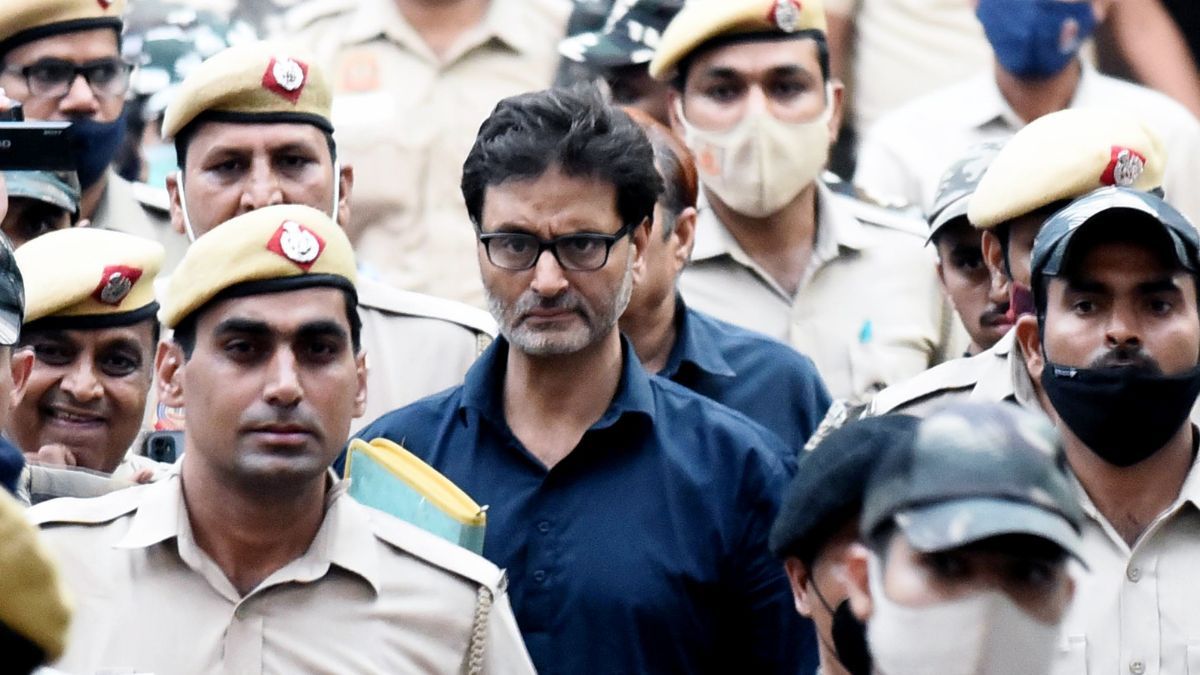- By Kamal Kumar
- Tue, 05 Dec 2023 03:52 PM (IST)
- Source:PTI
On Tuesday, the Delhi High Court scheduled a hearing on February 14 for the National Investigation Agency's plea, seeking the death penalty for Kashmiri separatist leader Yasin Malik in a terror funding case. Additionally, the court mandated Malik, who had admitted the charges, to participate in the proceedings virtually.
The decision of the court came following the absence of any representation of Malik in the court. Observing the absence of representation, the bench of Justices Suresh Kumar Kait and Shalinder Kaur postponed the proceedings to February 14 next year for Malik, the Chief of Jammu and Kashmir Liberation Front (JKLF), currently serving a life sentence.
On May 29, the court asked Malik to appear in response to NIA's request for the death penalty in the terror funding case. Later, the prison authorities sought permission for his virtual presence, citing him as a "very high-risk prisoner" and requesting the need to avoid physical court appearances for public safety. The court had approved the virtual appearance.
Trail Court Had Sentenced Him To Life
A trial court sentenced Yasin Malik to a life sentence on May 24, 2022, after finding him guilty of breaking laws under the Unlawful Activities (Prevention) Act (UAPA) and the IPC. Malik admitted to the charges, including those under the anti-terror law UAPA. The NIA is now appealing this sentence, arguing that a terrorist should not automatically receive a life sentence just because they admitted guilt and did not go through a trial
NIA Demanded 'Death Penalty'
While seeking enhancement of the sentence to the death penalty, the NIA has said if such dreaded terrorists are not handed capital punishment only because they pleaded guilty, there will be complete erosion of the sentencing policy and terrorists would have a way out to avoid capital punishment.
A life sentence, the NIA asserted, is not commensurate with the crime committed by terrorists when the nation and families of soldiers have suffered the loss of lives and the trial court's conclusion that Malik's crimes did not fall within the category of the “rarest of the rare cases” for grant of the death penalty is “ex-facie legally flawed and completely unsustainable”.
The agency has emphasised that it has been proved beyond reasonable doubt that Malik spearheaded terrorist activities in the Valley and, with the help of dreaded foreign terrorist organisations, had been “masterminding, planning, engineering and executing armed rebellion in the Valley in an attempt to usurp the sovereignty and integrity of a part of India”.
“Not giving capital punishment to such dreaded terrorists will result in miscarriage of justice, as, an act of terrorism is not a crime against society but it's a crime against the entire nation; in other words, it's an act of ‘external aggression', ‘an act of war' and an ‘affront to the sovereignty of nation',” the plea has said.
The trial court, which had rejected the NIA's plea for capital punishment, said the crimes committed by Malik struck at the "heart of the idea of India" and were intended to forcefully secede Jammu and Kashmir from the Union of India. It had, however, noted that the case was not the “rarest of rare”, warranting the death penalty. The maximum punishment for such an offence is the death penalty.
Charges On Former 'Terrorist'
Malik was awarded a life term for two offences - section 121 (waging war against the government of India) of IPC and section 17 (raising funds for terrorist act) of the UAPA. According to the Supreme Court, life imprisonment means incarceration till the last breath, unless the sentence is commuted by the authorities.
The court had also awarded Malik a 10-year jail term each under sections 120 B (criminal conspiracy), 121-A (conspiracy to wage war against the government of India) of IPC and sections 15 (terrorism), 18 (conspiracy for terrorism) and 20 (being member of terror organisation) of UAPA.
(With Inputs From Agencies)

